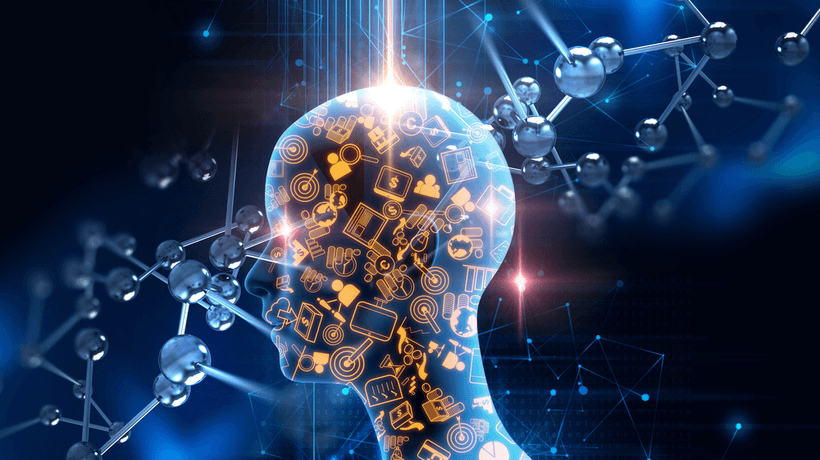
AI In Training: Implementation And Advantages
Do you work with AI in your job, think about it
The fourth industrial revolution [1] has started to have a significant impact on the global workforce. One such influence is the change in the key skills of workers worldwide in the coming years. A report released by the World Economic Forum said that technological skills will account for about a third of the most important skills by 2025. They also acknowledged that these skills are not yet required in today’s jobs. It is time to think about what those skills could be and start developing and delivering the course materials that will empower them.
Artificial Intelligence Technology
One of the most influential new technologies is artificial intelligence (AI). The artificial intelligence market is currently close to $ 60 billion in 2021. That number is expected to grow at an average annual growth rate (CAGR) of over 28% over the next five years, to a total of nearly $ 230 billion in 2026. A recent discussion about calculating the usefulness of AI systems was quite illuminating . Although it is still in the early stages of operational AI systems deployment, early metrics suggest that the AI system being modeled is six times more accurate / effective than humans. Since AI systems involve machine learning (ML) and the ability to explain the decisions / actions of the systems, AI systems adoption is likely to accelerate beyond some of the current estimates.
Gartner published a study that found that 75% of jobs had more than 40% of required skills changed. In addition, 43% of employees learned a new skill over a period of three years. Street directory [2] identified the following 10 skills for the new world of work:
- communication
- creativity
- technology
- collaboration
- flexibility
- Information management
- Self-management
- Customer service
- character
- Personal development
Given this list, it is clear that we have our work to do. Developing, maintaining, and fine-tuning these 10 skills is required if we are to retain our value to our employers. At this point, the focus of this work is on technology. With all technological advances, artificial intelligence clearly stands out from the others. Numerous companies have begun researching and researching the likely effects of AI on the global workforce.
Important questions to keep in mind
In examining these efforts, a number of issues emerged as key questions:
- What can we expect from these systems?
- Are our voices and tones rated?
- How do we question the decisions of these AI systems?
- Are facial expressions also examined by AI systems?
- How much trust should be placed in their recommendations?
- How will these systems affect my job and career path?
Given the capabilities of these systems and the other underlying new technologies that are at a rapid pace, the answers are sparse and some are even changing some of our mental models. Much of the information required to answer these questions must come from the developers of the AI system used and must be gained through experience. They should be thoroughly tested and their serviceability and accuracy objectively assessed and disclosed. As the technology matures and becomes more widely used, standards are likely to evolve that take into account operational integrity and proper interaction between AI and humans. By then, there will be differences between these systems, and it is likely that we will need to become familiar with the operational capabilities, accuracy, objectivity, and interactive anomalies of more than one AI system.
Insight: AI-powered adaptive learning skills are a growing area in research and development activities. This is likely to become one of many AI components in the comprehensive learning systems of the not-too-distant future.
When studying AI systems in education, they had a global market of only around $ 2 billion in 2019. These skills have started to make a difference in education. The development of AI-supported learning games, AI-enabled learning experiences and so-called AI-enabled teacher assistants will further expand their use in K-12 environments through LLL (Life-Long Learning) environments. As an education professional, how would you feel if one of those AI-enabled teacher assistance systems corrected something you said live in front of your students? All of this would likely mean that the global market for AI systems in education will at least double in the next few years. This would create the need for educators to develop knowledge of AI technology and ability to interact with AI systems.
Insight: AI educational support is likely to be used in complex technical subjects like STEAM (science, technology, engineering, arts, math) and this will clearly play a role in eLearning. For example, AI is already being integrated into art and has even started creating art (computer creativity).
graduation
AI will continue to drive changes in education and in the world beyond. All professionals are well advised to take the opportunity to deal with AI in education and its possibilities at this early stage. Again, AI is just one of seventeen rapidly emerging technologies that have significant disruptive potential in a number of industries, including education. It is clear that these seventeen emerging technologies are shaping many aspects of the future educational environment, and this will have a significant impact on the world. One thing is certain, that lifelong learning is necessary personally and professionally, supported by first-class training, and that it supports the individual in achieving his goals in the constantly changing work and living environment.
References:
[1] Fourth industrial revolution
[2] Top 10 skills for the new world of work



